Is Water Vegan? Exploring the Aquatic Conundrum


Is water vegan?
Well, it depends on who you ask.
What region are they from? How strictly do they define their vegan values? Have they ever taken a microscope to their drinking water? Are they aware of modern water filtration methods?
What on Earth Are You Talking About?
See, we’re all doing our best to live a life of compassion towards the animals and the earth.
Some vegans may be unaware of how cruel the chocolate industry can be. Others still may follow their vegan values differently and eat chocolate anyway.
Some vegans passionately abstain from eating honey while others consider honey to be more ethical than other plant-based sweeteners.
As a vegan or veg-curious reader, you landed on this page because you’re trying to make kind choices and reduce any potential harm you might cause to others. We applaud you for that.
In this imperfect world that sneaks in unnecessary animal byproducts at every turn, it may feel difficult to discern whether every purchase of goods that you make is sustainable, let alone vegan, with absolute certainty.
Did you know that the pack of Crayola crayons you gave your little cousin for their birthday isn’t actually vegan, as the crayon contains beeswax and stearic acid, which is derived from beef fat? Were you aware that white table sugar is often processed using charred animal bones?
The point is, from the medicine we take to the fruits and vegetables we eat to the glue that holds our shoes together, nearly every facet of our lives is touched in some way by the use of animals for human needs. Indeed, it’s nearly impossible to fully escape the consequences of industrial animal agriculture and the use of animal byproducts in otherwise unthinkable ways.
So . . . Is Tap Water Vegan?
The short answer: it depends.

Tap water is typically sourced from surface water or ground water, which include natural bodies of water such as rivers, lakes, and underground aquifers. And tiny microscopic zooplankton called copepods, one of the most abundant animals on the planet, are present in nearly all natural bodies of water on Earth.
If you were to take a big gulp of lake water you would likely be drinking down a multitude of the world’s tiniest animals.
But whether or not these tiny creatures are present in the glass of water you draw from the sink, it’s likely there were zooplankton in the water at one point in time, who are either still there or were filtered out (a process that they didn’t likely survive).
Most tap water undergoes rigorous filtration, treatment, and purification processes to ensure it meets health and safety standards. The processes differ by municipality, and is critically important to remove impurities, including bacteria, viruses, chemicals, and even particles like sand and debris.
Although some copepods can be as small as four one-thousandths of an inch (0.004), crustaceans are nevertheless aquatic animals belonging to the Kingdom Animalia classification, and their presence in water would deem it, by definition, not vegan.
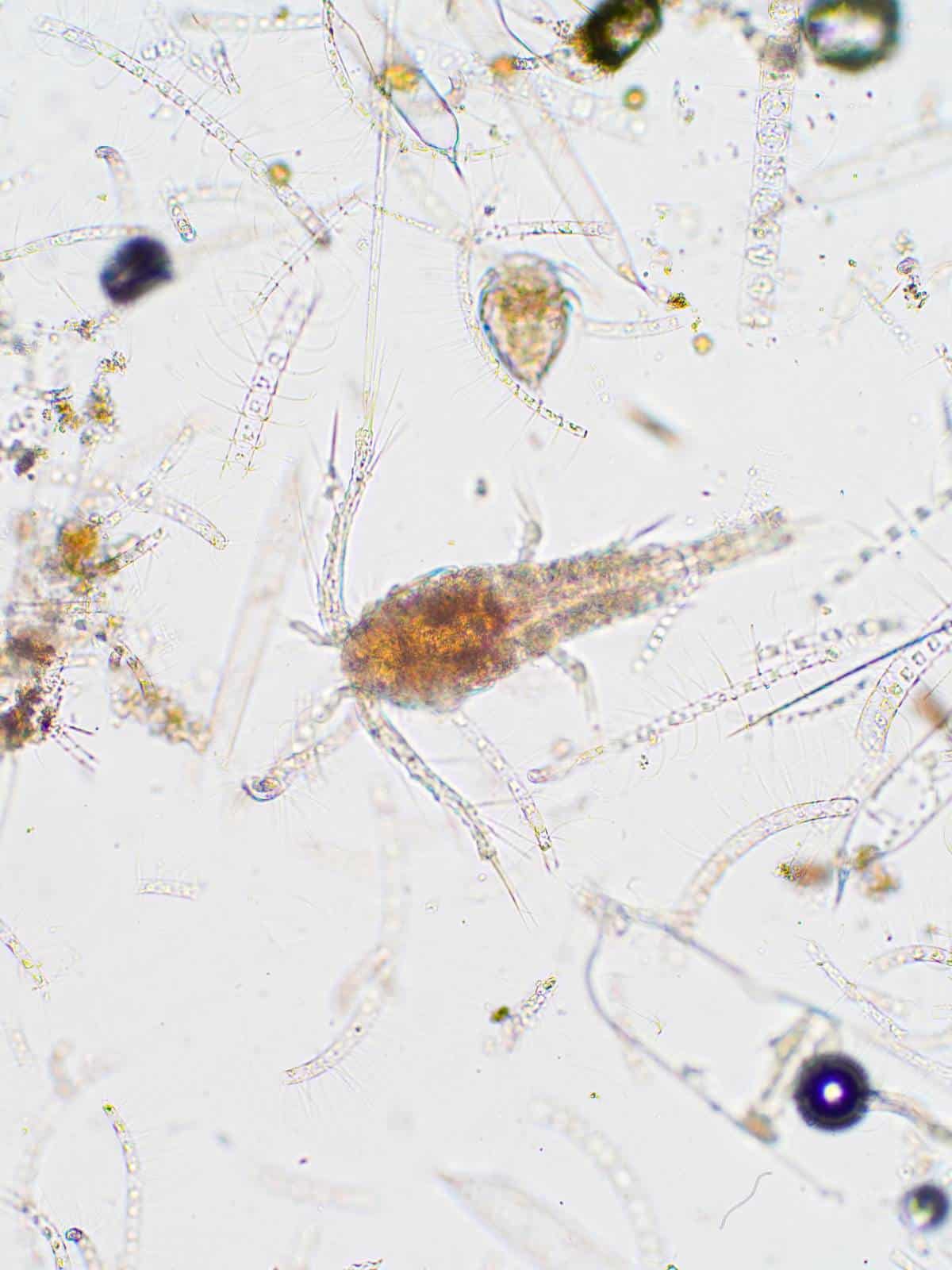
New York City tap water recently came under scrutiny when rumor spread through social media channels that it is not filtered, and crustaceans are therefore present in NYC drinking water. This understandably gave the heebie-jeebies not only to vegans, but nearly everyone who has become accustomed to crystal clear clean drinking water.
Should Vegans Drink Tap Water?
If a city’s tap water is not vegan, the question remains: should vegans drink it?
There is no singular “right” answer to that question. There is no vegan rulebook. The very definition of the word “vegan”, coined by Donald Watson in 1944, eschews perfectionism and is defined as:
“A way of living that seeks to exclude, as far as possible and practicable, all forms of exploitation of, and cruelty to, animals for food, clothing and any other purpose.”
– Donald Watson
Whether you’re vegan or not, now that you know what may be (or may have been) lurking in your tap water, you’ll have to come to terms with that reality and decide if it will impact your choices moving forward.
There Is Not One Right Answer
Some vegans may view the presence of these microscopic animals in drinking water as beyond their control, the lesser of two evils (plastic bottled water has its own environmental issues), or a non-issue altogether. Others find it difficult to continue consuming and using water that may have a member (or many members) of the animal kingdom in it.
As vegans living in an inherently imperfect world, we should consider:
Who are we impacting by drinking that water?
How are we impacting them?
And compared to the other clean water alternatives—such as plastic water bottles (which are notoriously detrimental to our planet)—which available and accessible choice causes the least harm and feels most ethically aligned?
Regardless of where we each stand, it’s important to note that the majority of tap water is not used for drinking. It’s used for showering, cooking, flushing toilets, washing your car, watering your plants and garden, and beyond. The tap water you drink is a tiny drop in the bucket compared to the overall tap water you use. Not to mention the water involved in getting your food and other products to the table.
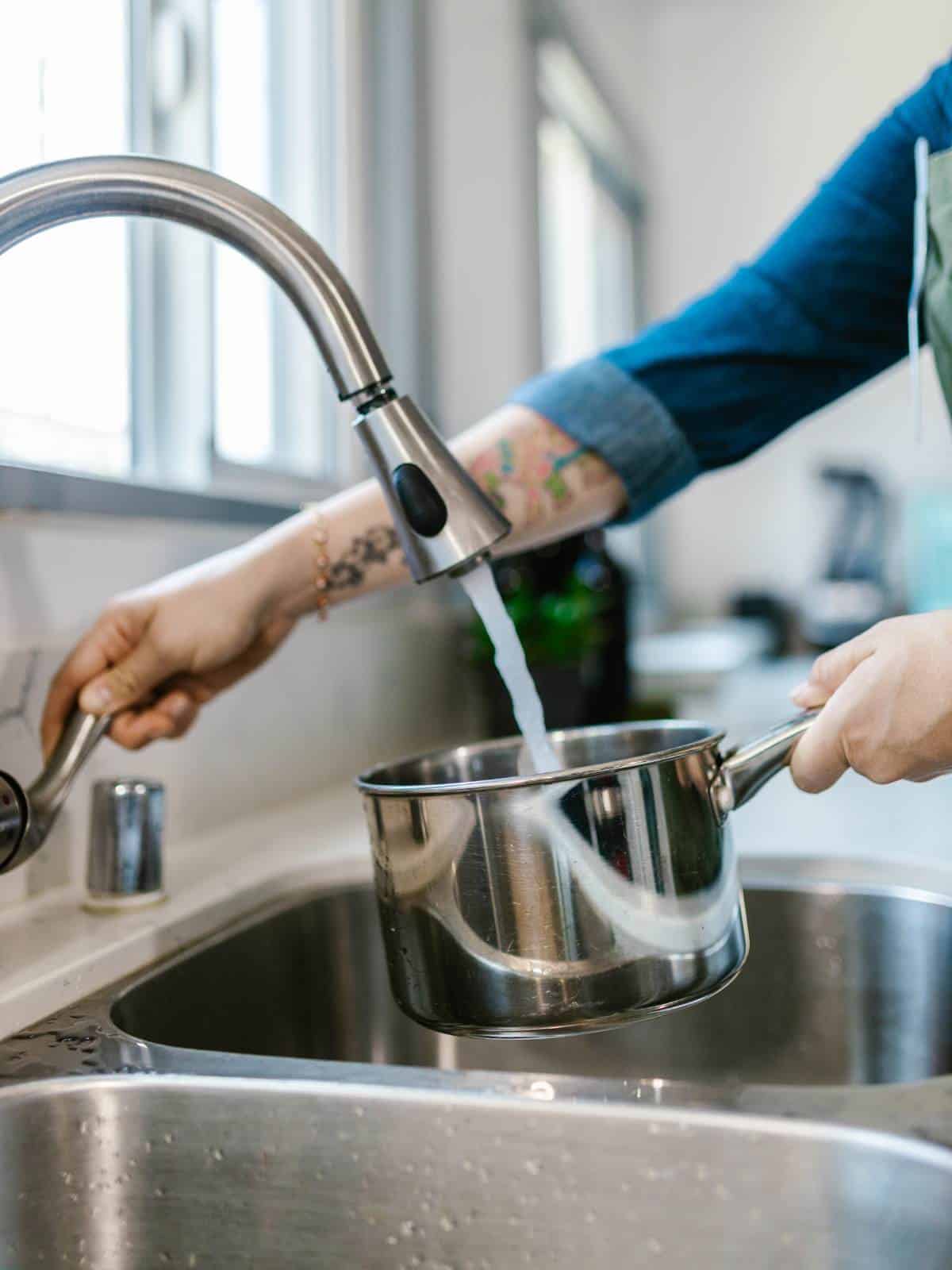
Abstaining from tap water may prove to be a lot more difficult that it may seem on the surface, and any level of perfection here is going to be impossible to attain.
But there is something we all can do to make a considerable difference on the water front. And that comes down to our food choices.
Consider this: by eating plant-based food instead of animal foods, you’ll be reducing your overall water consumption dramatically. For instance:
- One pound of meat requires the water equivalent of over 1,000 toilet flushes
- A single dairy cow can use over 180,000 gallons of water before slaughter
- Feeding an omnivore requires around 4,000 gallons of water a day compared to 300 gallons for a vegan
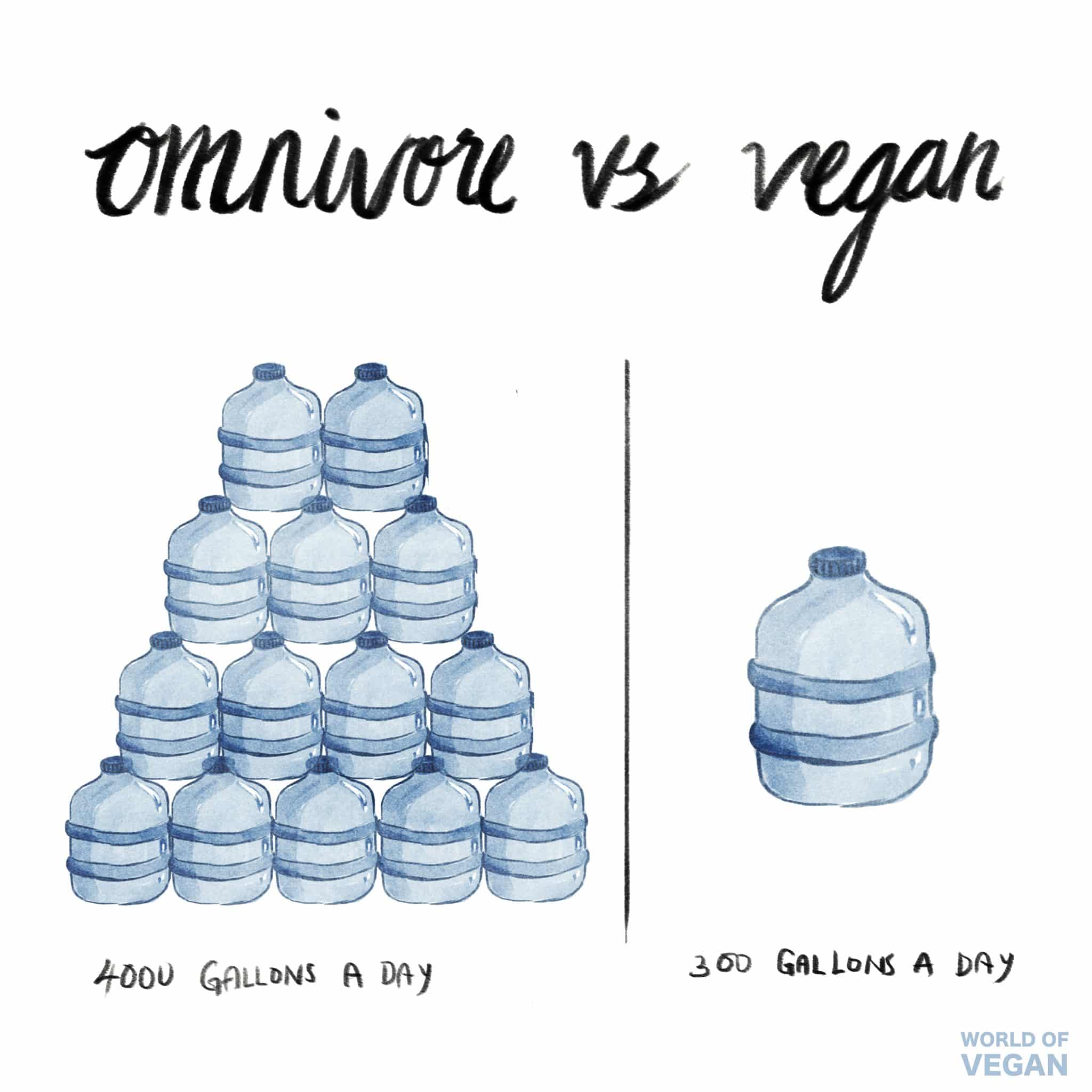
Is New York City Water Kosher?
In New York City, copepods are present in public drinking water, providing numerous public health benefits by cleaning the water and eliminating mosquito larvae. But by definition, the presence of copepods—though they may be microscopic, they are animals—technically renders that water not vegan. But is the water Kosher?
Keeping kosher is a deeply important personal decision that Jewish individuals and families make, often in concert with input from their rabbi. That’s why some Jewish people in New York struggle with the decision to consume the water due to the presence of crustaceans rendering it treif, or not kosher.
We recognize that this is an extremely significant decision for many Jewish individuals, requiring complex thought and which can be informed by many factors. We strongly advise anyone keeping kosher and struggling with this issue to talk to a trusted rabbi and strategize a solution that ultimately gives them peace of mind.
Is Bottled Water Vegan?
Part of this answer is directly addressed due to the inclusion of animal byproducts, and part of it is tied to values inherently connected to a vegan lifestyle, like climate conservation.
Filtration and production processes are rarely widely known for common food and drink products, and that secrecy is often by design. For example, isinglass, derived from the bladders of fish, is utilized in the production process of some alcoholic beverages.
Bottled water sold commercially by multinational corporations may have likewise been purified through the use of harmful chemicals or other processes involving animal byproducts. Not to mention, some major bottled water brands are less concerned with sustainable packaging and the long-term impact of plastic on the environment.
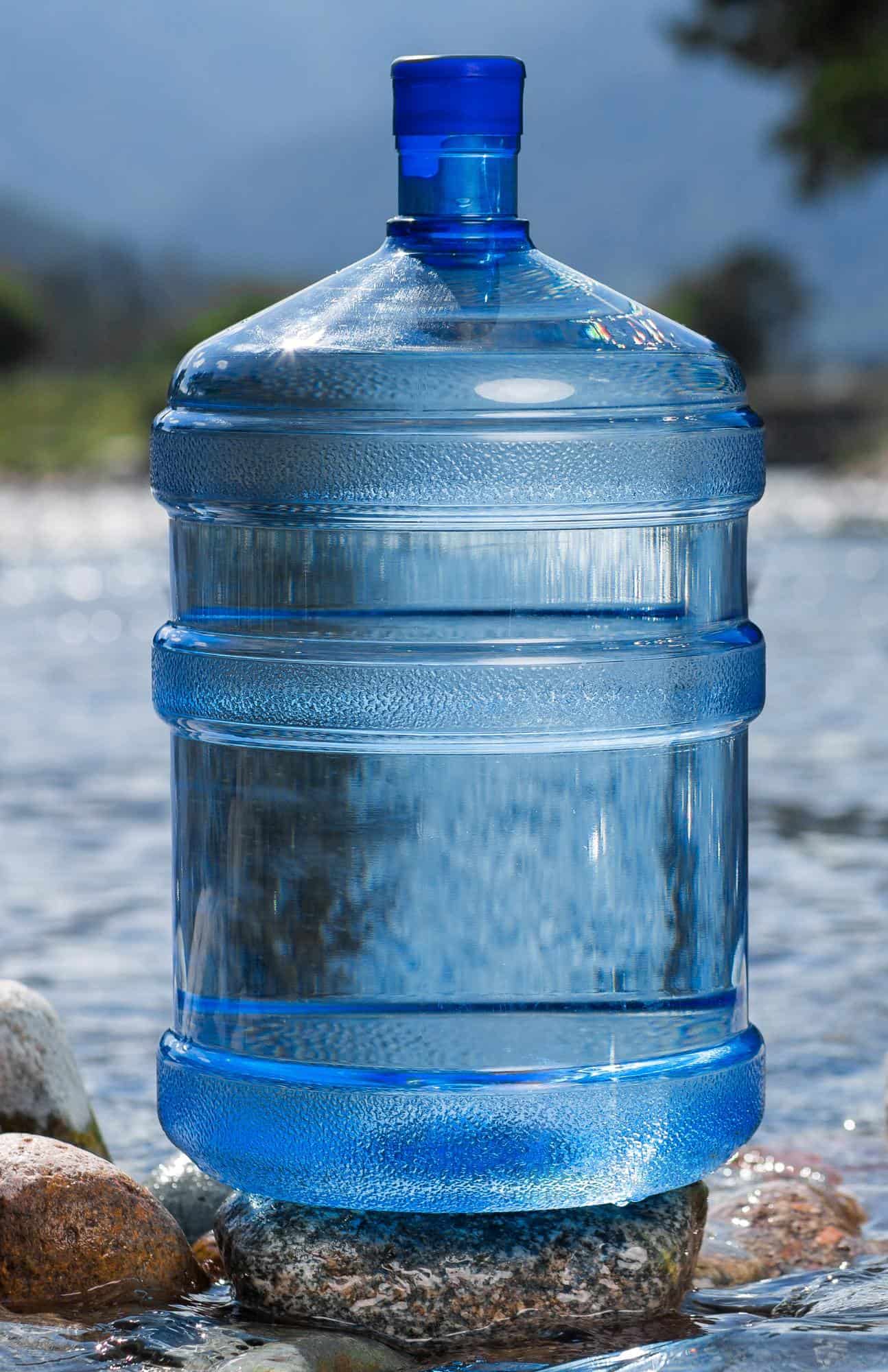
Another consideration: was the water sourced sustainably, or is the process affecting the ability for wildlife to safely access water in its natural habitat?
Can’t You Just Tell Me What to Do?
Once again, you probably landed on this page because making compassionate choices and living a life free from harmful behaviors is important to you. And we get that!
We live in an imperfect world, and “vegan policing” may very well turn curious non-vegans away from the movement, and that helps no one. We unfortunately exist within a system that is inescapably interconnected. And our species has built deeply integrated systems that rely on exploitative labor, the destruction of the environment, and other cruelties for the goods many people enjoy each day.
It is time to think more deeply about our choices. To develop better systems. To untether our lives from reliance on exploitation. But causing some degree of harm in today’s world is unavoidable. And shaming others for consuming the very thing that gives life to every sentient being on this planet will never be aligned with our compassionate and judgment-free mission.
As we continue to navigate the world through a vegan lens, let us remember that knowledge empowers us to make informed choices that align with our values. So, raise your glass, whatever it’s filled with, to learning and doing the best we can.
Regardless of how we each land on this issue, one thing is certain. Those of us living with clean, drinkable tap water are enormously privileged. One in four people worldwide do not have access to any clean drinking water, and nearly one in two lack access to basic sanitation. And we do have the power to change that.







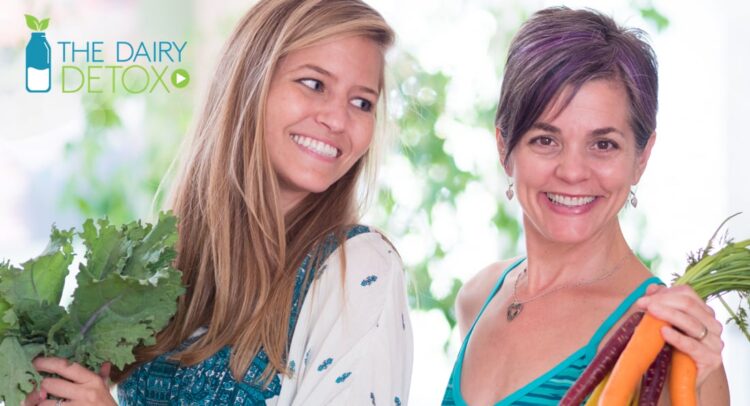
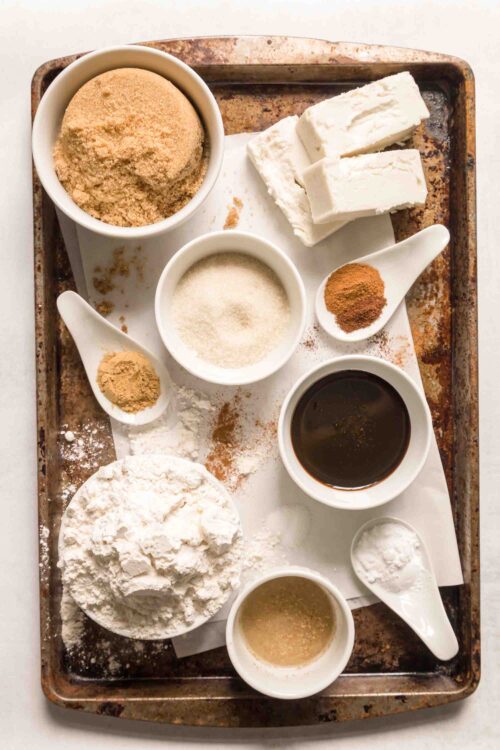

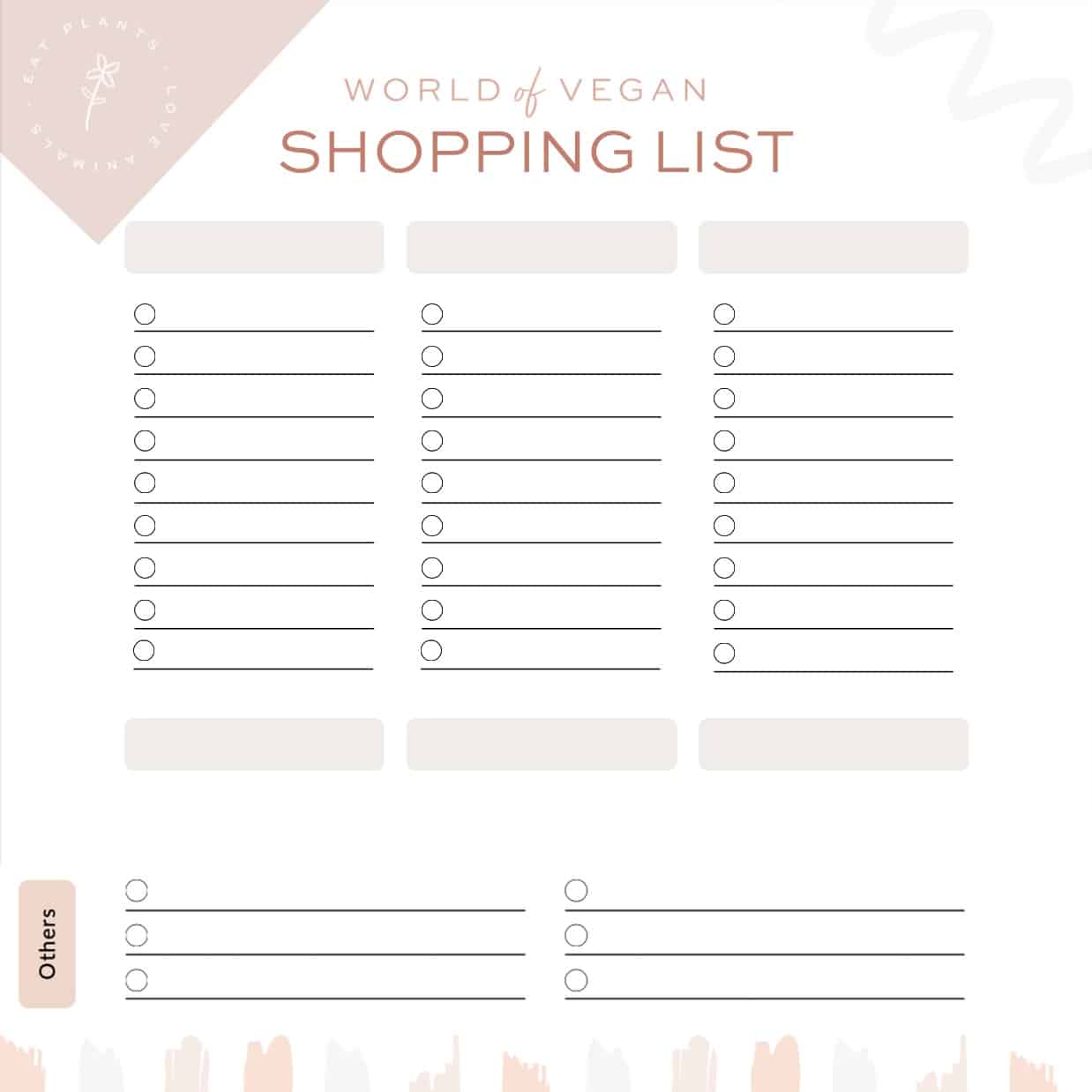
Leave a Comment